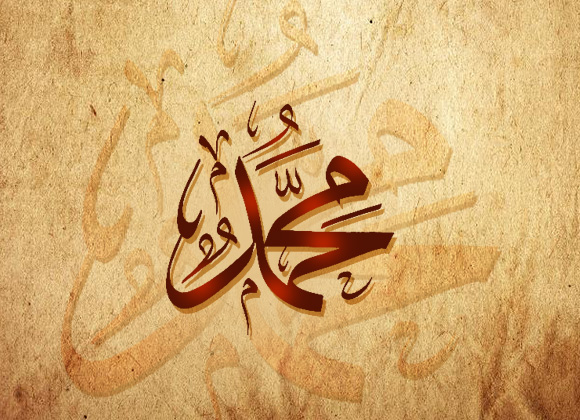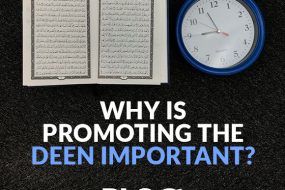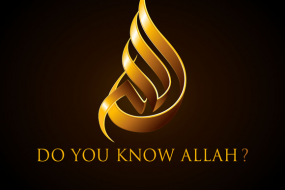
Celebrating the Mawlid
by Dr. Bilal Philips
Rabia Awwal Mubaarak! It is the third month of the Hijri Calendar which in many Muslims celebrate the birthday of Prophet Muhammad (pbuh) believing it to have occurred on the 12th of this month. However, the truth is that his actual date of birth is unknown just as the date of birth of Prophet Jesus (pbuh) is unknown. Furthermore, its celebration is an innovation in Islamic worship as it was not instructed by the Prophet (pbuh) nor was it done by his companions. Even the celebration of birthdays in general is not permissible because of its pagan roots. As a result even the early Christians did not celebrate Christ’s birth because they considered the celebration of anyone’s birth to be a pagan custom.
So instead, let us apply the lessons learned from the life of the Prophet (pbuh) and increase our efforts to spread the true religion of God in this month, while keeping alive the Ramadaan lesson of making fasting truly a way of life by also fasting Mondays and Thursdays of every week, and the 13th, 14th & 15th – according to the recommendations of the Prophet (pbuh). It is worth noting that when the Prophet (pbuh) was asked why he fasted Mondays, he replied that it was the day on which he was born!!! So, for those bent on commemorating the Prophet’s birth, let them do as he did and FAST EVERY MONDAY!!!








9 replies on “Celebrating the Mawlid by Dr. Bilal Philips”
Counter refutation of Salafis (by brother Aamir
Ibrahim, if anyone finds any refutation of this
counter refutation then contact brother Aamir
directly on the skype id provided on home page
of this website)
Q) Mawlid was not practiced or arranged by any of the Sahaba, nor is there any
proof of it being done by Tabiyeen, these are the Islaaf whom we follow and
choosing their way is the safest path.
Answer: First of all, it is false to say this because Prophet (Peace be upon him)
himself celebrated the day of his birth as proven from Sahih Muslim that
Prophet (Peace be upon him) was asked about fasting on monday and he
replied “He was born on this day and reveletion was sent on him” [See above
the heading called “Istadlal from ahadith, Proof # 1], above all, Allah azza
Wajjal Himself takes the “DAYS OF PROPHETIC BIRTHS AS DAYS OF
PEACE” [See Qur’an 19:15]
Secondly, the Salafis are asked to bring forward a categorical hadith in which
Prophet (Peace be upon him) forbade Mawlid, remember to prove something
haram you need a more stronger proof whereas even silence goes in favour of
us Sunnis due to this following hadith:
ﻋﻦ ﺃَﺑﻲ ﺍﻟﺪﺭﺩﺍﺀِ ﻗﺎﻝَ: ﻗﺎﻝَ ﺭﺳﻮﻝُ ﺍﻟﻠﻪ ﺻﻠﻰ ﺍﻟﻠﻪ ﻋﻠﻴﻪ ﻭﺳﻠّﻢ: «ﻣﺎ ﺃَﺣﻞَّ ﺍﻟﻠﻪ ﻓﻲ
ﻛﺘﺎﺑﻪِ ﻓﻬﻮَ ﺣَﻼﻝٌ، ﻭﻣﺎ ﺣَﺮَّﻡَ ﻓﻬﻮَ ﺣَﺮﺍﻡٌ، ﻭﻣﺎ ﺳَﻜَﺖَ ﻋﻨﻪُ ﻓﻬﻮَ ﻋَﻔْﻮٌ، ﻓﺎﻗْﺒَﻠﻮﺍ ﻣِﻦَ
ﺍﻟﻠﻪ ﻋﺎﻓِﻴَﺘَﻪُ، ﻓِﺎﻥَّ ﺍﻟﻠﻪ ﻟﻢ ﻳَﻜُﻦْ ﻟﻴَﻨْﺴَﻰ ﺷَﻴْﺌﺎً، ﺛﻢَّ ﺗﻼ:ﻭَﻣَﺎ ﻛَﺎﻥَ ﺭَﺑُّﻚَ ﻧَﺴِﻴًّﺎ
ﺭﻭﺍﻩ ﺍﻟﺒﺰﺍﺭ ﻭﺍﻟﻄﺒﺮﺍﻧﻲ ﻓﻲ ﺍﻟﻜﺒﻴﺮ، ﻭﺇِﺳﻨﺎﺩﻩ ﺣﺴﻦ ﻭﺭﺟﺎﻟﻪ ﻣﻮﺛﻘﻮﻥ .
Translation: Abu Darda (RA) narrates that the Prophet (salallaho alaihi
wasalam) said: Whatever Allaah has permitted in His Book is Halaal, whatever
He has forbidden is Haraam, “AND ANYTHING OVER WHICH THERE IS SILENCE
IS PARDONED” so accept the pardon of Allaah, for Allaah cannot be forgetful.
Then he recited this verse: ‘and your Lord is never forgetful’ [Maryam 19:64].
[Imam Haythami in Majma uz Zawaid 1:171, Hadith No. 794]
Imam Haythami (rah) said: It is narrated by Al-Bazzar and Tabarani in his
Kabir with “Hassan chain having reliable narrators”
This hadeeth is also classified as Sahih by Nasir ud-din Albani in his Silsilat
as Sahihah (5/325)
Hence according to this hadith the Silence proves Mawlid to be allowed because
the Asl for this is found in Qur’an and Sunnah as so many proofs have been
shown above.
Thirdly even if assuming Sahaba or Tabiyeen did not do it (although no proof of
Nafi exists) then there are many things which were not practiced by Sahaba
and Tabiyeen, but later Ulama derived rulings on them looking at the principles,
Therefore If anything does not contradict the principles of Shariah then it has
always been allowed, for example the knowledge of al-Jarh wa’t Ta’deel in
hadith, the knowledge of Asma ur Rijaal, putting Araab (punctuation) on Qur’an,
Building minarets on mosques, narrating hadiths with chain of narrators etc…
The point is that their Asl is found in Shariah, similarly the Asl for rejoicing on
Mawlid is found in Qur’an itself let alone Sunnah where it is definitely found too.
Q) Mawlid is Bidat al Dhalalah (blameworthy innovation), Prophet (Peace be
upon him) said in rigorously authentic ahadith that All bidahs are misguidance
and all misguidance are in the fire.
Answer: This hadith is not general but rather specific as classical scholar Imam
Ibn Hajr al Haythami (rah) explained:
ﻭﻓﻲ ﺍﻟﺤﺪﻳﺚ “ﻛﻞ ﺑﺪْﻋﺔ ﺿﻼﻟﺔ ﻭﻛﻞ ﺿﻼﻟﺔ ﻓﻲ ﺍﻟﻨﺎﺭ ” ﻭﻫﻮ ﻣﺤﻤﻮﻝ ﻋﻠﻰ
ﺍﻟﻤﺤﺮﻣﺔ ﻻ ﻏﻲ
Translation: That which is narrated in Hadith that All innovations are evil and
all evil are in hell fire, This hadith will be applied for Bidat al Muhrima (i.e.
category of haram innovations only) not others.[Al Haytami in Fatawa al
Hadithiyyah, Volume No.1 Page No. 109, Published by Dar ul Fikr, Beirut,
Lebanon]
Secondly, such terminology is used in Shariah many times, for example Quran
states: “Verily you and what you worship apart from Allah are the fuel of
hell” (Qur’an 21:98)
We all know that Jesus is worshiped by Christians, now if we make this ayah
general then Naudhobillah Jesus shall become fuel of hell fire too (Audhobillah
Min Dhalik), therefore we have to understand the reality behind words of
Prophet (Peace be upon him), the Bidahs which Prophet forbade were all new
innovations which contradicted shariah, the dalil for this could be found in
Sahih Bukhari
Volume 3, Book 49, Number 861: (Sahih Bukhari – Muhsin Khan Wahabi
translation)
Narrated Aisha: Allah’s Apostle said, “If somebody innovates something which
is not in harmony with the principles of our religion, that thing is rejected.”
The Important Usool
We know from many ahadith that Prophet (Peace be upon him) allowed new
matters in deen, like few sahaba recited Fatiha on bite of snake (see: Bukhari
Volume 3, Book 36, Number 476) , they had no knowledge of it from Prophet
(Peace be upon him), but on coming to Prophet it was approved, some people
still argue that it was allowed in presence of Prophet, so whatever he allows
and forbids we have to follow, the answer to this is that Prophet could never
contradict in his sayings, If he has laid down a principle that all innovations are
evil in mutlaqqan terms then there is no Jawaz of him accepting some himself,
hence It is necessary to check everything according to principles of Shariah.
One more answer to this is that Umar (ra) called combining sahaba behind 1
Qari as “Na’imal Bidatu Hadihi (i.e. What an Excellent innovation this is)” refer
to Sahih Bukhari in Kitab ut Tarawih… this is proof from Nass that every bidah
is not bad, on this some people also argue that Umar (ra) was referring to
Lughwi Bidah not Shari’i, they are asked to bring proof from hadith itself that
Umar (ra) differentiated bidah between Lughwi and Shari’i?
Above all Uthman bin Affan (ra) started the second Adhaan for Jumma, Salafis
reply to this as: They were Khulafa ar rashideen and we are bound to follow
them because hadith states so, the answer to this is same i.e. had every bidah
been evil then our pious predecessors would not have contradicted themselves,
had word Bidah been only bad then Sayyidna Umar (RA) would have used
wording “Ni’mal Sunnat” rather than Ni’aml Bidatu”
Q) The day of Prophet (Peace be upon him) ‘s birth is not confirmed to be 12th
of Rabi Ul Awwal, rather his day of death is confirmed to be 12th Rabi Ul
Awwal, hence to rejoice on a sad day is a wrong thing.
Ans): First of all those who prove Mawlid always believe that Mawlid is not
restricted to 1 date only, you can rejoice on any day, secondly the early most
Seerah books like Seerat Ibn Ishaq (rah), Ibn Hisham (rah), Tabaqat Ibn Sa’d
(rah) confirm the date of birth to be 12th Rabi ul Awwal, so does Imam Ibn
Kathir (rah) in his book Sirat ar Rasul where he calls it mainstream opinion and
calls other opinions as weak….
@ holawale bello
The Prophet (Ṣallāhu ‘alayhi wa salam) himself never commanded his followers to celebrate his birthday, nor was this practice known for the first few centuries of Islām. The Ulama of Ahlus Sunnah during the first three centuries never celebrated such occassion since they used to fast on that day by following the sunnah.
Prophet (Peace be upon him) himself did NOT celebrate the day of his birth as proven from Sahih Muslim that Prophet (Peace be upon him) was asked about fasting on monday and he replied “He was born on this day and reveletion was sent on him.” This clearly proves that the day of his birth cannot be regarded as eid or celebration due to the fact that the Porphet (peace be upon him) fasted. Its haram to fast on days of Eid.
Therefore to fast and celebrate the same day of rabi al awwal as eid is biddah since it is an innovation which contradicts the shariah. Thus there are only two types of Eid in Islam; eid al fitr and adha.
Regarding the following verse:
“And peace be upon him the day he was born and the day he dies and the day he is raised alive.” [Quran 19:15]
No where in the verse does it mention about celebration. Clearly the verse states that Allah sent His peace upon Yahya. The verse also mentions peace be upon Yahya the day he is raised alive (meaning day of Judgement). Day of judgement is serious stage not day of celebration!
When we turn to books of history, a number of dates regarding the birth of the Prophet (Ṣallāhu ‘alayhi wa salam) are found.
Some of these opinions are:
1. 2nd Rabīʿ al-Awwal. This was the preferred opinion of Abū Maʿshar al-Sindī (d. 171), one of the earliest scholars of sīra, and of the famous Māliki jurist and scholar, Ibn ʿAbd al-Barr (d. 463). It was also listed by al-Wāqidī (d. 207) as a possible opinion.
2. 8th of Rabīʿ al-Awwal. This was the opinion of the Andalusian scholar Ibn Ḥazm (d. 456), and many of the early scholars. Imām Mālik (d. 179) reported this opinion from al-Dhuhrī (d. 128)
3. 12th of Rabīʿ al-Awwal. This is the opinion of Ibn Isḥāq (d. 150), who reported it without any authentic reference.
The exact birth-date of the Prophet (Ṣallāhu ‘alayhi wa salam) has always been the subject of dispute amongst classical scholars. Nothing authentic has been reported in the standard source books of tradition, and this fact in itself shows that it was not held in the significance that some later sects did. The 12th of Rabīʿ al-Awwal is a strong candidate for being the exact birth date of the Prophet (Ṣallāhu ‘alayhi wa salam), but the 2nd, 8th and 10th are also viable positions.
Ironically the mawlid celebrations was invented by people of bidah (ahlul bidah) and NOT Ahlus Sunnah! The fatimid shia dynasty first initiated the celebration of the mawlid in 517 A.H. [Al-Maqrizi, in his Khiṭaṭ]
To conclude mawlid celebration is not a part of the religion.
The Prophet Muhammad(S.A.W.) said:Qullu(ALL) bid’aa dhwalala,wa qullu dhwlala fahuwa finarr!!!
The Prophet Muhammad(S.A.W.) said:Qullu(ALL) bid’aa dhwalala,wa qullu dhwlalafahuwa finarr!!!
So tell me who compiled Quran as one book and when?
Who put the black cloth on ka’aba and when?
Who started praying with microphone and when?
Man don’t be silly
Hmm, your article is good. By reading your article I am clear about Milad celebrations.
nice article
I read your posted very well and it sound meaningful.
To love the prophet PBUH , you should follow his Sunnah .
We can calibrate the birth of the prophet PBUH everyday by doing what he asked us to do .
We mixed-up our cultural heritage with Islam.its not at all permissible.